|
| NEWS |
 |
| Women in Multilateral Peace Operations 2023: What is the State of Play? |
|
This month, SIPRI launched its annual update on the state of women’s participation in multilateral peace operations. The statistics illustrate to what extent organizations and their member states are making progress towards increasing women’s representation in multilateral peace operations. Overall, they show that organizations are still falling short of their own strategic targets for women’s participation, signalling a clear need to redouble efforts to achieve these goals. They also highlight that gender equality remains particularly elusive within leadership roles, which calls for a focus on leadership as a critical component of any strategy aimed at enhancing women’s representation.
|
|
|
Download the SIPRI Fact Sheet
|
|
|
 |
| SIPRI statement on the 2023 Nobel Peace Prize |
|
SIPRI congratulates Narges Mohammadi on the award of the 2023 Nobel Peace Prize, in recognition of ‘her fight against the oppression of women in Iran and her fight to promote human rights and freedom for all’. Dan Smith, SIPRI Director, said, ‘Narges Mohammadi is an outstanding individual who has shown extraordinary courage over more than a quarter of a century.’
|
|
|
Read more
|
|
|
 |
| SIPRI and UNODA hold dialogues on ‘Responsible AI for Peace’ |
|
On 13–14 September, SIPRI and the United Nations Office for Disarmament Affairs (UNODA) held the first of two multi-stakeholder dialogues on ‘Responsible AI for Peace and Security’. Fifteen experts from industry, academia, civil society and government participated in the online discussion. Following the dialogues, SIPRI and UNODA launched the podcast series ‘Responsible AI for Peace’. The podcast explores the challenges that AI presents for international peace and security and connects these challenges with the practical world of AI development.
|
|
|
Read more | Listen to the podcast
|
|
|
 |
| SIPRI presents regional cooperation findings to ECOWAS |
|
In September, SIPRI’s work on climate-related security risks in West Africa was presented and discussed at a high-level conference in Abuja, Nigeria. The event, which was hosted by SIPRI’s partner, Friedrich-Ebert-Stiftung (FES) Nigeria, brought together experts, researchers, civil society actors and representatives from bodies such as the Economic Community of West African States (ECOWAS) and the West Africa Climate Security Working Group.
|
|
|
Read more
|
|
|
 |
| Hans M. Kristensen on the state of world nuclear forces |
|
In this SIPRI Conversation, Hans M. Kristensen, Associate Senior Fellow with the SIPRI Weapons of Mass Destruction Programme and Director of the Nuclear Information Project at the Federation of American Scientists (FAS), discusses the state of world nuclear forces in the face of growing geopolitical tensions. Kristensen explains some of the terms used in the SIPRI Yearbook—SIPRI’s annual assessment of the state of armaments, disarmament and international security—and discusses the current nuclear landscape and the risk of use of nuclear weapons.
|
|
|
Watch the SIPRI Conversation | Read the SIPRI Yearbook sample chapter on world nuclear forces
|
|
|
|
| COMMENTARY |
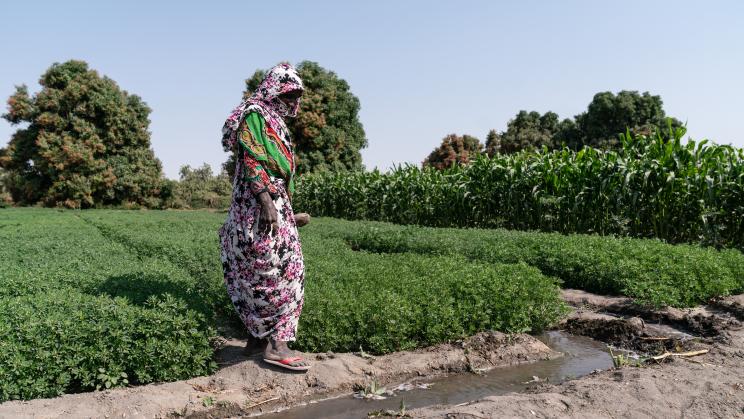 |
| Why peace and localization are key to transforming food systems |
|
This guest blog post from the HDP Nexus Coalition Secretariat—a partner of the 2023 Stockholm Forum on Peace and Development—argues that hunger and lack of prospects are significant drivers of conflict. As the relationship between conflict and food insecurity goes both ways, long-term food system interventions and resilience building can play a crucial role in capitalizing on local capacity, restoring agricultural production and, ultimately, consolidating peace.
|
|
Read the SIPRI WritePeace Blog
|
|
|
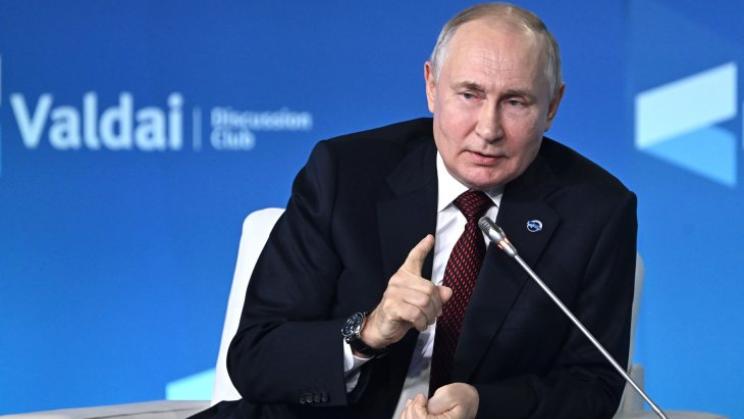 |
| Russia’s potential withdrawal from the Comprehensive Nuclear-Test-Ban Treaty underlines the urgent arms control problem |
|
This SIPRI Expert Comment explores the consequences for arms control of the vote of the Russian Parliament on whether to revoke Russia’s ratification of the 1996 Comprehensive Nuclear-Test-Ban Treaty (CTBT). The authors write that the latest announcement is another blow to the already precarious international arms control architecture by the leader of a nuclear weapon state. They argue that Russia and the United States need to put aside their differences and get to the negotiating table.
|
|
Read the SIPRI Expert Comment
|
|
|
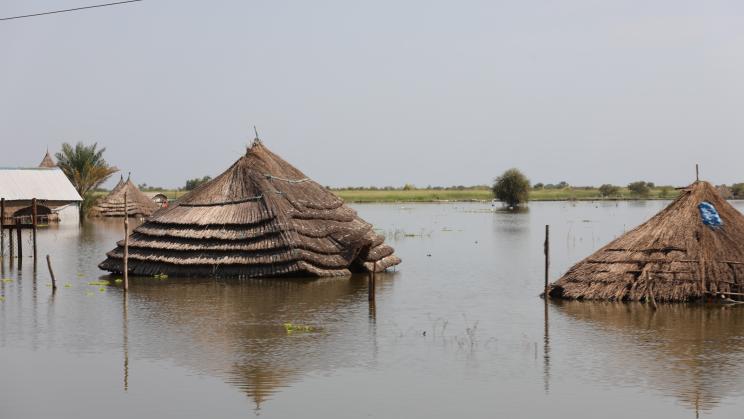 |
| Training on climate security is crucial for the future of peace operations |
|
In this WritePeace Blog, Farah Hegazi writes that demand from peace operations for training on climate-related security risks has grown steadily and quickly over the past few years. This blog argues that training for peace missions on climate-related security could be critical to meeting the call for the UN Security Council to address the peace and security implications of climate change. But the financial resources required to provide such training are limited. Hegazi argues that funding should be made available so that peace operations can provide regular training.
|
|
Read the SIPRI WritePeace Blog
|
|
|
 |
| Towards an agenda for gender perspectives in space security |
|
Developments in space have increased the domain’s relevance to peace and security. Damage to or disruption of space assets, such as communications satellites, could have serious ramifications on the daily lives of much of the world’s population. As the international community explores how to govern space security, incorporating gender considerations is essential—not only for more equitable and effective governance but also to better understand the risks associated with attacks on or interference with space systems. This SIPRI Essay therefore propose a preliminary ‘agenda’ on gender perspectives in space security.
|
|
Read the SIPRI Essay
|
|
|
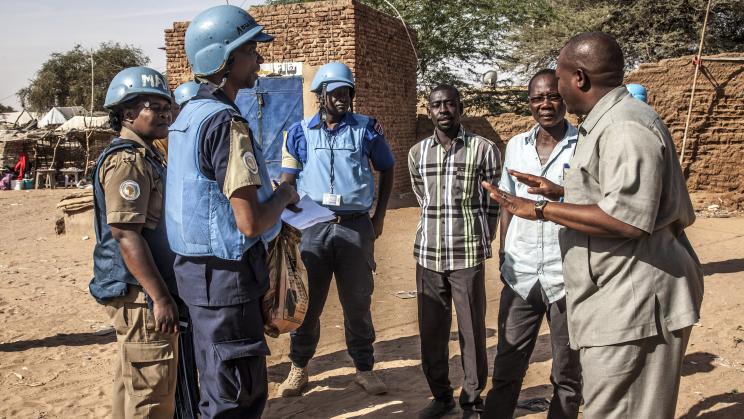 |
| Tackling mis- and disinformation: Seven insights for UN peace operations |
|
Social media is not just weaponized within conflicts; it can also decisively influence how, when and whether conflicts manifest in fragile states. UN peace operations cannot afford to ignore this challenge. The Challenges Forum and the UN Department of Peace Operations organized a roundtable at the 2023 Stockholm Forum to discuss how to mitigate the effects of mis- and disinformation on peace operations and what different actors could do. This SIPRI WritePeace Blog presents seven insights that emerged from those discussions.
|
|
Read the SIPRI WritePeace Blog
|
|
|
|
|
|
 |
| External outlets |
|
SIPRI experts were recently featured in the following external outlets:
-
‘What climate? The different meaning of climate indicators in violent conflict studies’, by Ruben Dahm, Karen Meijer, Ernst Kuneman and Louise van Schaik, published in Climatic Change on 17 October.
-
‘Civil disobedience and lawfare: Protest movement and contentious politics in the Kurdistan Region of Iraq’, by Shivan Fazil and Megan Connelly, published in Studies in Ethnicity and Nationalism on 12 October.
-
‘Not so peaceful technology? What risks may civilian AI pose to peace and security?’, by Vincent Boulanin and Charles Ovink, published by the Responsible AI for Peace podcast on 5 October.
-
‘The Palestinian Authority’s Revolving Door’, by Alaa Tartir, published by the Rethinking Palestine podcast on 25 September.
-
‘A new agenda for peace and the climate emergency’, by Cedric de Coning, Gracsious Maviza and Kheira Tarif, published by IPI Global Observatory on 25 September.
|
|
|
|
| UPCOMING EVENTS |
| |
| 13 November 2023 |
| Geopolitics: A Changing World Order? Views from Africa, Asia, Europe and the USA |
|
SIPRI is pleased to open registration for a conversation with members of SIPRI’s international Governing Board on 13 November in Stockholm. The event will have a focus on Israel, Palestine and the Gaza war.
|
|
Register here
|
|
| |
| 28–30 November 2023 |
| Intensive introductory course on nuclear non-proliferation and disarmament |
|
SIPRI and the European Union Non-Proliferation and Disarmament Consortium (EUNPDC) will co-host an intensive introductory course on the proliferation of nuclear weapons, mechanisms to control their further spread, the security of nuclear materials and installations, and pathways to disarmament. The course, which is intended for students of engineering disciplines, will take place on 28–30 November 2023 in Stockholm, Sweden.
|
|
Read more
|
|
| RECENT EVENTS |
| |
| 4 October 2023 |
| SIPRI co-organizes session at the Africa Resilience Forum |
|
On 4 October, SIPRI co-organized a session at the 2023 Africa Resilience Forum in Abidjan, Côte d’Ivoire. The session ‘Accelerating Finance for Sustaining Peace’ focused on how to reconfigure the climate finance system towards innovation, sustainability and predictability while widening the engagement of financing actors.
|
|
Read more
|
|
| |
| 29 September 2023 |
| SIPRI hosts event on de-risking |
|
On 29 September, SIPRI hosted a hybrid workshop to examine how the EU and Japan approach ‘de-risking’. The workshop was led by SIPRI’s China and Asia Security Programme and assembled experts, scholars, trade officials and former diplomats from China, Finland, France, Germany, Italy, Japan, Sweden, the United Kingdom and the USA. The workshop explored the concept of de-risking and how de-risking policies have been, are or will be implemented in practice.
|
|
Read more
|
|
| |
| August 2023 |
| SIPRI and its partner organize community dialogues in Iraq |
|
In August, SIPRI and its local partner in Iraq, the Al-Tahreer Association for Development, facilitated the first round in a series of issue-based community dialogues in Nineveh Province, Iraq. The community dialogues focus on issues of common concern and mutual interest to different communities. The dialogues seek to empower and incentivize the participants to identify community-driven solutions to the pressing challenges facing their communities and to enhance citizens’ engagement and cooperation with the local authorities.
|
|
Read more
|
|
|
| PUBLICATIONS |
 |
| Women in Multilateral Peace Operations 2023: What is the State of Play? |
|
This booklet provides an overview of women’s participation in multilateral peace operations, including data and trends regarding women’s representation in leadership roles, overall personnel and member states’ contributions. It looks at UN peace operations, EU Common Security and Defence Policy missions and operations, and Organization for Security and Co-operation in Europe field operations. Its objectives are to support the efforts to increase the representation of women in peace operations, and to inform and foster the debate on the future of the women and peace and security agenda in this context.
|
|
Read the SIPRI Fact Sheet
|
|
|
 |
| ‘Listen to Us!’: Local Perceptions of Populations in Central Mali |
|
The project ‘Central Mali for Security and Development’ aimed to represent and understand the daily lives of populations affected by Mali’s security crisis. This report, which is now available in French and English, concludes four years of research carried out by SIPRI and its partner Point Sud during 2019–22. The report offers evidence-based data to address the needs of populations by advocating for multi-level conflict resolution strategies and providing a long-term vision for peace and security.
|
|
Read the SIPRI Partnership Publication
|
|
|
 |
| The Role of Space Systems in Nuclear Deterrence |
|
Space systems are used for multiple civilian and military purposes, including missions related to nuclear deterrence. Consequently, real and perceived military operations targeting space systems may create pathways to nuclear escalation. This paper provides the basis to explore nuclear escalation risks in connection with the space domain, with a focus on China, Russia and the USA. By examining space systems relevant to nuclear deterrence and assessing their vulnerabilities, this paper lays the groundwork for further analysis on escalation pathways and risk-reduction measures.
|
|
Read the SIPRI Background Paper
|
|
|
 |
| Climate, Peace and Security Fact Sheet: Somalia (2023) |
|
This Climate, Peace and Security Fact Sheet examines the convergence of climate change and violent conflict, which has undermined livelihoods and security in Somalia. It offers a range of recommended actions for the international community to address these issues effectively.
|
|
Read the report
|
|
|
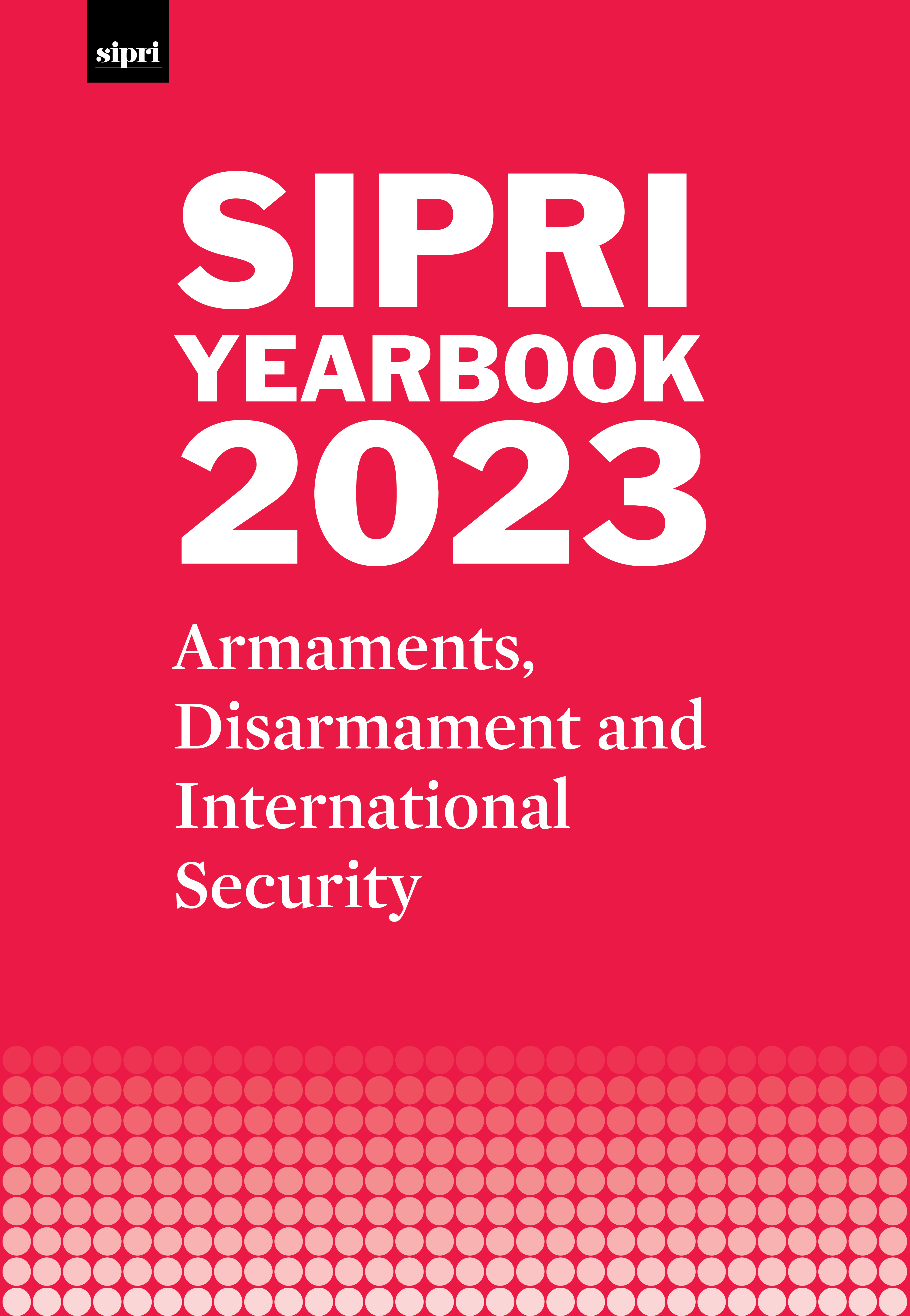 |
| SIPRI Yearbook 2023 |
SIPRI Yearbook 2023 presents a combination of original data in areas such as world military expenditure, international arms transfers, arms production, nuclear forces, armed conflicts and multilateral peace operations with state-of-the-art analysis of important aspects of arms control, peace and international security. In addition to its detailed coverage of nuclear arms control and non-proliferation issues, the latest edition of the SIPRI Yearbook includes
- insight on developments in conventional arms control in 2022;
- regional overviews of armed conflicts and conflict management;
- in-depth data and discussion on military expenditure, international arms transfers and arms production; and
- comprehensive coverage of efforts to counter chemical and biological security threats.
|
|
Browse the contents page | Download the summary (PDF) | Download the sample chapter on world nuclear forces (PDF) | Order SIPRI Yearbook 2023
|
|
|
| |
|
|
|